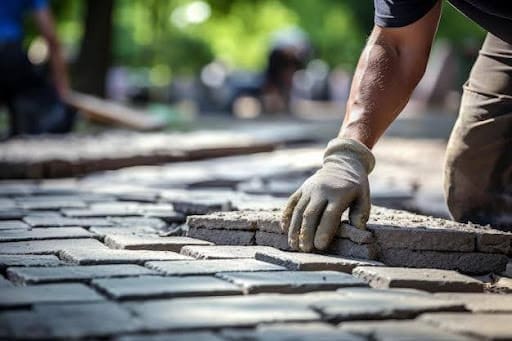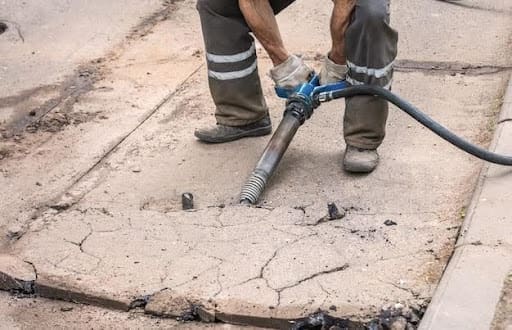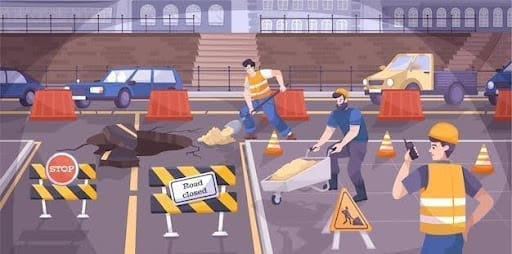6 Common Mistakes To Avoid When Planning Sidewalk Repair
Providing pedestrians with a safe passage and path is essential, especially in towns or the suburbs. These areas tend to have stringent zoning laws and property agreements. Therefore, as part of your public safety commitment, you must ensure the sidewalks are always up to the best standards. Failure to do so could lead to injuries due to falls or sharp objects. As you plan to repair the sidewalk, you need an expert to help you. You need to be diligent to ensure you don’t cause any damage or disturb the peace around the neighborhood. Such projects can also go wrong easily, hence the need to be on the watch.
So, before you begin the repairs, learn about common mistakes to avoid during the repairs.

1. Hiring Wrong Contractor
You need to know that sidewalk damage could arise from various sources. Therefore, repairs alone won’t cut it unless you address the main cause of damages.
However, asphalt paving companies in Reno will solve all the problems, saving you subsequent costs. Once you hire the best contractors, be ready to incur costs.
Sometimes, minor repairs require extensive work. This will depend on the contractor’s diagnostics. Anyone can do the repairs, even the least experienced contractors. However, it takes the best to solve the problem.
Pay attention to the approach discussed, how the contractor plans to do the repairs, and why. While your input is necessary, it is best to allow the expert to do the work without disrupting. After that, follow the given guidelines and solutions the contractor proposes.

2. Ignoring Oregon Permits and Sidewalk Repairs Guidelines
Before you repair the sidewalk, you need to have the necessary permits for the job. Skipping any guideline will put you in harm’s way. Consult with the infrastructural regulatory authorities to approve your repairs before you begin.
If you need to make any adjustments, like expansion, you also need permits. These regulations protect you from damage to water pipes and other public infrastructure.
This should be the first process, even before you seek the best contractors for the job. You can read these guidelines through the Bureau of Transportation website or consult an expert. Also, a good contractor can guide you since most understand the construction guidelines.
3. Not Selecting Appropriate Material
Sidewalk repairs must retain the original materials in all places. So, if you are only repairing a section, you need to consider a similar material that will ensure uniformity. If that is impossible, you must undo the entire sidewalk and replace it with a similar material.
Next, consider the material quality to avoid frequent damages and repairs. Quality sidewalk repair material must meet certain features. That is weather-resistant, durable, easy to use and recyclable.
Any other material that does not meet these qualities is not good for your sidewalk. Also, do not use any material that may damage the environment.
Anything containing soluble chemicals, asbestos, or other poisonous gasses is not ideal for the pavement. You risk contaminating the flowing water and eventually harming the vegetation around you.
4. Do Not Underestimate Repair Timelines
Sidewalk repairs seem easy, maybe one that a contractor can complete within the day. Avoid raising your expectations too high or believing that the process is that simple. Sometimes, things get more complicated than you think.
It may take a week or so, depending on the procedures. Begin by applying for the permits; this is usually the longest process. Next, evaluate the best contractor for the job. Then, get a quote and sign a contract. Based on the diagnoses, the repairs may last days.
As you can see, you need to plan for delays and other inconveniences. The better the planning, the less cost you are likely to spend since you can avoid certain mistakes.

5. Failure To Plan For Disruptions
As you repair the sidewalks, you are likely to cause some disruption. For instance, the contractor may have to block the street temporarily. Plan for the noise, machine movement and other potential damages.
Finally, any potential damage to infrastructure like lamps, traffic signs, signposts, posts, and other public resources should be considered. With that in mind, you can effectively communicate with the relevant parties about the disruptions.
This is why you need permits, as they will cover all these aspects. If you fail to get a permit, anyone can sue you for nuisance, especially noise.

6. Plan for Uncertainties
Depending on where you live, natural events may hit at any time. With that in mind, you can schedule your repairs based on the publicly available data. You want to do the repairs followed by flooding, heavy rains, and snow.
Eventually, the natural factors will undo everything, and you must start again. It is best to do it in the spring when people are more likely to favor such construction projects.
Final Thoughts
Anything could go wrong with your repairs. Think of antral disasters, weather, disruption, infrastructure damages, and delays. Therefore, plan for these uncertainties by collaborating with the contractor and local authorities. Mind the costs and focus on long-term repairs instead of fixing the damages.









